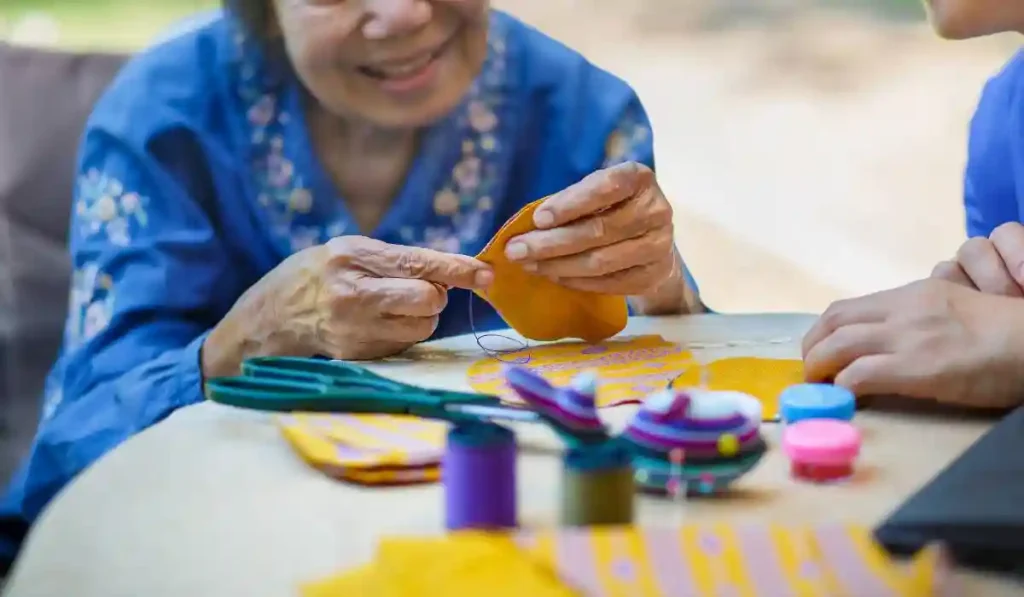As a caregiver, you often find yourself walking a tightrope between providing care and maintaining your own well-being. However, it’s important to remember that you can’t pour from an empty cup.
In the role of a caregiver, there are several common pitfalls that can inadvertently impact both you and the person you’re caring for. It’s crucial to be aware of these potential missteps and to navigate the caregiving journey with caution.
You might be surprised to learn about the common mistakes that many caregivers unknowingly make, and the impact they can have on their own health and the well-being of their loved ones.
Understanding the Caregiver Role
Understanding the caregiver role involves providing support, assistance, and compassion to those in need. It’s essential to recognize that as a caregiver, you play a crucial role in the lives of those you care for. It’s not just about physical help; emotional support is equally important. Being there for someone, listening to their concerns, and offering a shoulder to lean on can make a world of difference.
However, it’s vital to be mindful of caregiver burnout. Yes, you want to give your all, but it’s okay to take a step back when needed. Recognize the signs of burnout and don’t hesitate to seek help or take a break. You can’t pour from an empty cup, so remember to prioritize self-care. Providing emotional support can be draining, so it’s crucial to find a balance.
Common Mistakes to Avoid
To ensure effective caregiving, it’s important to be mindful of common mistakes that should be avoided. As a caregiver, you play a crucial role in supporting the well-being of those in your care. Here are some common mistakes to steer clear of:
- Communication challenges: Effective communication is essential in caregiving. It’s important to listen actively, be empathetic, and convey your thoughts clearly. Misunderstandings can lead to frustration and hinder the quality of care provided. Take the time to understand the preferences and needs of the person you’re caring for, and encourage open dialogue to foster a supportive environment.
- Emotional burnout: Caregiving can be emotionally taxing, and it’s common for caregivers to experience burnout. It’s vital to recognize the signs of burnout and seek support when needed. Taking breaks, practicing self-care, and seeking assistance from other caregivers or support groups can help prevent emotional exhaustion.
- Neglecting self-care: Caregivers often prioritize the needs of others above their own, neglecting their own well-being. Remember that taking care of yourself isn’t selfish but necessary for providing the best care. Prioritize self-care activities, seek help when needed, and set boundaries to prevent caregiver fatigue and burnout.
Overlooking Self-Care
Neglecting your own self-care while focusing on the needs of those you care for can lead to physical and emotional exhaustion, hindering your ability to provide effective support. It’s easy to get caught up in the demands of caregiving, but it’s essential to prioritize your own well-being.
Self-care isn’t selfish; it’s a necessary part of being able to give your best to others. Recognizing the importance of self-care means understanding that taking care of yourself enables you to continue providing care for your loved ones without burning out.
Signs of burnout can manifest as feeling constantly tired, experiencing increased levels of stress or anxiety, and becoming easily irritable.
You may also notice a lack of interest in activities you once enjoyed or have trouble sleeping. These are red flags that indicate you need to take a step back and focus on your own self-care.
Whether it’s carving out time for exercise, meditation, or simply taking a break to relax, prioritizing your own well-being is crucial in ensuring you can continue to be an effective caregiver. Remember, by taking care of yourself, you’re also better able to care for others.
Neglecting Legal and Financial Planning
Amidst the demanding responsibilities of caregiving, it’s crucial to address the often overlooked aspects of legal and financial planning to ensure the well-being of both you and your loved ones. Neglecting these crucial aspects can lead to unnecessary stress and financial burden.
Here’s what you should prioritize:
- Estate Planning: Take the time to establish a will or living trust to ensure that your loved one’s assets are protected and distributed according to their wishes. This can provide peace of mind and prevent potential family disputes in the future.
- Financial Literacy: Educate yourself on your loved one’s financial situation, including their income, expenses, and any existing debts. Understanding their financial landscape will help you make informed decisions and ensure their financial security.
- Legal Documentation: Ensure that all legal documents, such as power of attorney and healthcare directives, are in place. These documents are essential for making critical decisions on behalf of your loved one and ensuring their preferences are respected.
Failing to Set Boundaries
Failing to set clear boundaries as a caregiver can lead to burnout and a decline in your own well-being. It’s understandable that you want to give your all to the person you’re caring for, but it’s crucial to establish personal boundaries to maintain your own health.
Setting limits on the amount of time and energy you devote to caregiving isn’t selfish; it’s necessary for your long-term ability to provide effective care.
Without personal boundaries, you may find yourself overwhelmed, emotionally drained, and unable to continue offering the level of support your loved one needs.
To avoid this, it’s essential to seek professional support and guidance. This can come in the form of counseling, support groups, or respite care services that provide temporary relief for caregivers. Professional support can help you navigate the challenges of caregiving and assist you in setting and maintaining healthy boundaries.
Remember that by taking care of your own well-being, you’re ultimately ensuring that you can continue to offer the best possible care to your loved one.
Frequently Asked Questions
What Are Some Common Signs of Caregiver Burnout and How Can It Be Prevented?
You can prevent caregiver burnout by recognizing signs like fatigue and irritability. Take breaks, practice self-care, and seek support from friends, family, or support groups. Coping strategies such as mindfulness and relaxation techniques can help you manage stress.
How Can Caregivers Ensure They Are Taking Care of Their Own Physical and Mental Health While Caring for a Loved One?
To ensure you’re taking care of your own physical and mental health while caring for a loved one, focus on self-care strategies and coping mechanisms. Seek support and build resilience through healthy boundaries and regular breaks.
What Legal and Financial Steps Should a Caregiver Take to Protect Themselves and Their Loved One?
To ensure legal protection and financial planning as a caregiver, it’s important to establish power of attorney, set up a living will, and organize financial documents. Seek professional advice to navigate these complex matters effectively.
How Can Caregivers Effectively Communicate Their Boundaries and Needs to Other Family Members or Friends?
To effectively communicate your boundaries and needs to family members or friends, start by setting clear boundaries and prioritizing self-care. Openly discuss family dynamics and communication, emphasizing the importance of understanding and support.
What Are Some Warning Signs That a Caregiver May Be Making Common Mistakes in Their Role, and How Can They Address These Issues?
You may be struggling with time and stress management as a caregiver if you feel overwhelmed, exhausted, and constantly behind. Prioritize self-care, seek support, and set realistic boundaries to address these issues and avoid burnout.
Conclusion
As a caregiver, it’s important to avoid common mistakes. These mistakes include neglecting self-care, overlooking legal and financial planning, and failing to set boundaries.
Remember that taking care of yourself allows you to better care for others. It is essential to prioritize self-care in order to maintain your well-being and prevent burnout.
In addition, overlooking legal and financial planning can lead to complications in the future. It is crucial to have important documents in place, such as power of attorney and a will, to ensure that your loved one’s affairs are properly managed.
Lastly, setting boundaries is essential for maintaining balance in your role as a caregiver. It is important to establish limits and communicate them with others involved in the caregiving process.
By understanding the caregiver role and avoiding these mistakes, you can provide the best possible care for your loved ones while also taking care of yourself.


